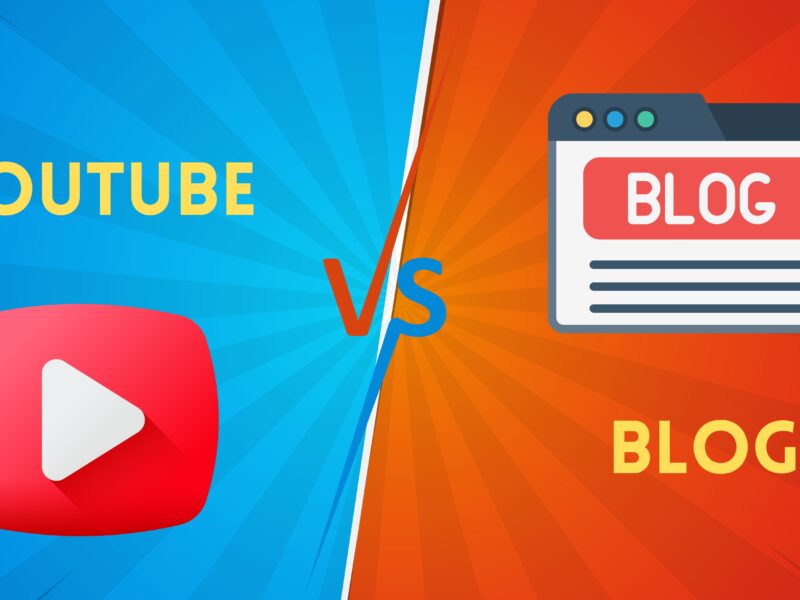Introduction
In the era of digital content, YouTube has evolved into a location where dreams are not only realized but also delighted in. Numerous individuals have achieved success in transforming their interests into popular YouTube channels that draw in viewers from across the globe. However, as the saying goes, “With great power comes great responsibility,” and in this case, that duty is to understand the tax implications of being a YouTuber.
A few of the variables are making interesting content, growing your fan base, and making money from your channel. However, keeping up with laws and managing your money are also very important. This article offers crucial tax guidance designed especially for YouTubers, acting as your guide through the financial maze of creating online content.
-
Recognize Your YouTube Income

Acknowledging that your earnings from YouTube are subject to taxes is the first step towards handling your taxes as a YouTuber. Keep thorough records of your earnings, regardless of how you make money: from sponsorships, merchandising sales, ad revenue, or fan donations.
-
Choose the Right Business Structure
As a YouTuber, you may operate your channel as a business. Depending on your specific situation, it might be beneficial to form a legal entity for your YouTube endeavors. Sole proprietorship, LLC (Limited Liability Company), or corporation are common choices. The choice you make can impact your tax liability and personal liability, so it’s advisable to consult with a tax professional to determine the best fit for your situation.
-
Keep Detailed Records
Maintaining meticulous financial records is crucial. Record all sources of income, expenses related to content creation, and other costs associated with your YouTube channel. To guarantee accuracy, use accounting software or seek the assistance of a qualified accountant.
-
Understand Deductions

One of the most significant benefits for YouTubers when it comes to taxes is the ability to deduct certain expenses related to your channel. These may include:
- Equipment: Cameras, microphones, lighting, and computer hardware and software necessary for content creation.
- Home Office: A portion of your home expenses can be deducted if you use a dedicated space for your YouTube activities.
- Travel and Meals: Expenses related to filming on location or attending industry events.
- Subscriptions and Software: Costs for video editing software, music subscriptions, and cloud storage.
- Marketing and Promotion: Money spent on promoting your channel and content.
-
Stay Informed About Tax Deductions
As tax laws evolve, content creators may be eligible for new credits or deductions. It’s critical to keep yourself updated on these modifications. To make sure you’re taking advantage of all the credits and deductions that are available to you, speak with a tax expert.
-
Quarterly Estimated Taxes

YouTubers are deemed self-employed, as opposed to regular employees, which means that their income is exempt from annual taxes. This could lead to a big tax bill at the end of the year. To prevent this, think about filing your estimated quarterly taxes with the IRS. Your tax expert can assist you in figuring out how much to pay.
-
Separate Personal and Business Finances
Keeping your personal and business finances separate is crucial for effective tax management. Open a separate bank account and credit card for your YouTube income and expenses. This separation simplifies record-keeping and ensures you’re not mixing personal and business transactions.
Also Read Our Article On “Some Stats On Earnings From Youtube!“
-
Self-Employment Taxes

You are in charge of paying the employee and employer shares of Social Security and Medicare taxes if you work for yourself. People often call this self-employment tax. When you are calculating your tax payments, be sure to account for this additional tax liability.
-
Understand Sales Tax
In certain states or nations, you might have to pay sales tax if you sell your audience goods or digital products. Recognize the sales tax regulations that apply to your circumstances and think about consulting an expert to make sure you are in compliance.
-
Seek Professional Guidance
Taxes can be complicated, and YouTube income introduces unique challenges. It’s highly recommended to consult a tax professional who specializes in working with content creators. They can help you understand your specific tax situation, navigate deductions, and ensure compliance with tax laws.
Conclusion
Becoming a successful YouTuber involves much more than creating engaging content; it also entails understanding and managing your finances. As your channel grows, so do your financial responsibilities. By recognizing your income, choosing the right business structure, maintaining accurate records, and understanding tax deductions, you can navigate the financial maze of online content creation more effectively.
Remember to keep personal and business finances separate, make quarterly estimated tax payments, and prepare for self-employment taxes. Additionally, stay informed about tax changes and sales tax requirements. Seeking professional guidance from a expert who understands the intricacies of content creation can be an invaluable investment in your financial future as a YouTuber.
The appeal of making engaging videos is definitely strong, but don’t undervalue the significance of fiscal responsibility and tax compliance. You can take pleasure in your hard work and avoid trouble with the tax authorities by adhering to these tax advice for YouTubers.



